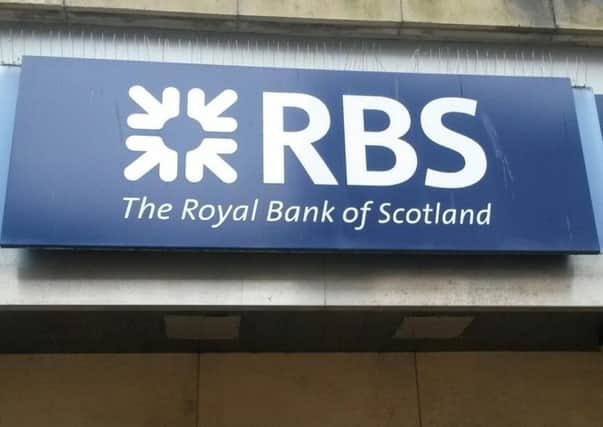Leader comment: Latest branch closures are too much too soon


After the latest round of over 30 closures in Scotland, there will be only 151 RBS branches remaining. That would be unthinkable ten years ago.
There is no escaping the fact that branch closures have a huge impact on communities, even though they are visited much less frequently by the bank’s customers than ever before.
Advertisement
Hide AdAdvertisement
Hide AdThe bank branch is a pillar of the High Street or the town centre. To underline the point, look at some of the towns from which RBS is disappearing - Leven, Cupar, Grangemouth, Kilsyth, Troon. And there are many more.
Such places are the very definition of the typical Scottish town. Every one of them will be poorer for the loss of an RBS branch.
In addition, what is happening is undermining attempts at vital local economic regeneration. Towns become less attractive propositions the moment a bank closes.
RBS has already earned itself a poor reputation in this area, earning rebukes from MSPs when it announced more than 150 branch closures three years ago. It was accused of reneging on a promise to customers to be “the last bank in town” by leaving 14 communities with no banking facilities.
Yet a bank cannot have social responsibility for the local population, or an obligation to prop up a struggling high street.
We can’t play moral blackmail with an organisation like RBS that has a duty to shareholders and is shelling out on fixed overheads that can no longer be justified as its customers increasingly migrate to online banking.
RBS blamed its decision on a “dramatic shift” in the way its customers conducted their business, including through their mobile phones and other portable devices. Although it should be added that many will have made the switch because they were fed up waiting in long queues at their branch.
Sadly then, closures are inevitable, and the number remaining will continue to dwindle.
Advertisement
Hide AdAdvertisement
Hide AdHowever, there must be a question over whether the closures have gone too far at this stage. Many will feel that they have, given the distances people will now have to travel to reach a branch.
Regardless of how much bank business is now done online, there will always be times when a visit to the branch is essential.
A balance has to be struck between the growth of online transactions and the need to retain a place for face-to-face business - such as paying in cheques, discussing a mortgage or arranging a loan.
That is vital until such time as it becomes possible, practical and acceptable to customers to carry out these functions remotely.
Has the industry achieved that balance? There is a growing sense that banks like RBS have gone too far too soon.
The great irony here is the taxpayer still ‘owns’ RBS. If the taxpayer was given the choice, we would hazard a guess the public would opt to keep the branches and cut the bonuses of executives instead.